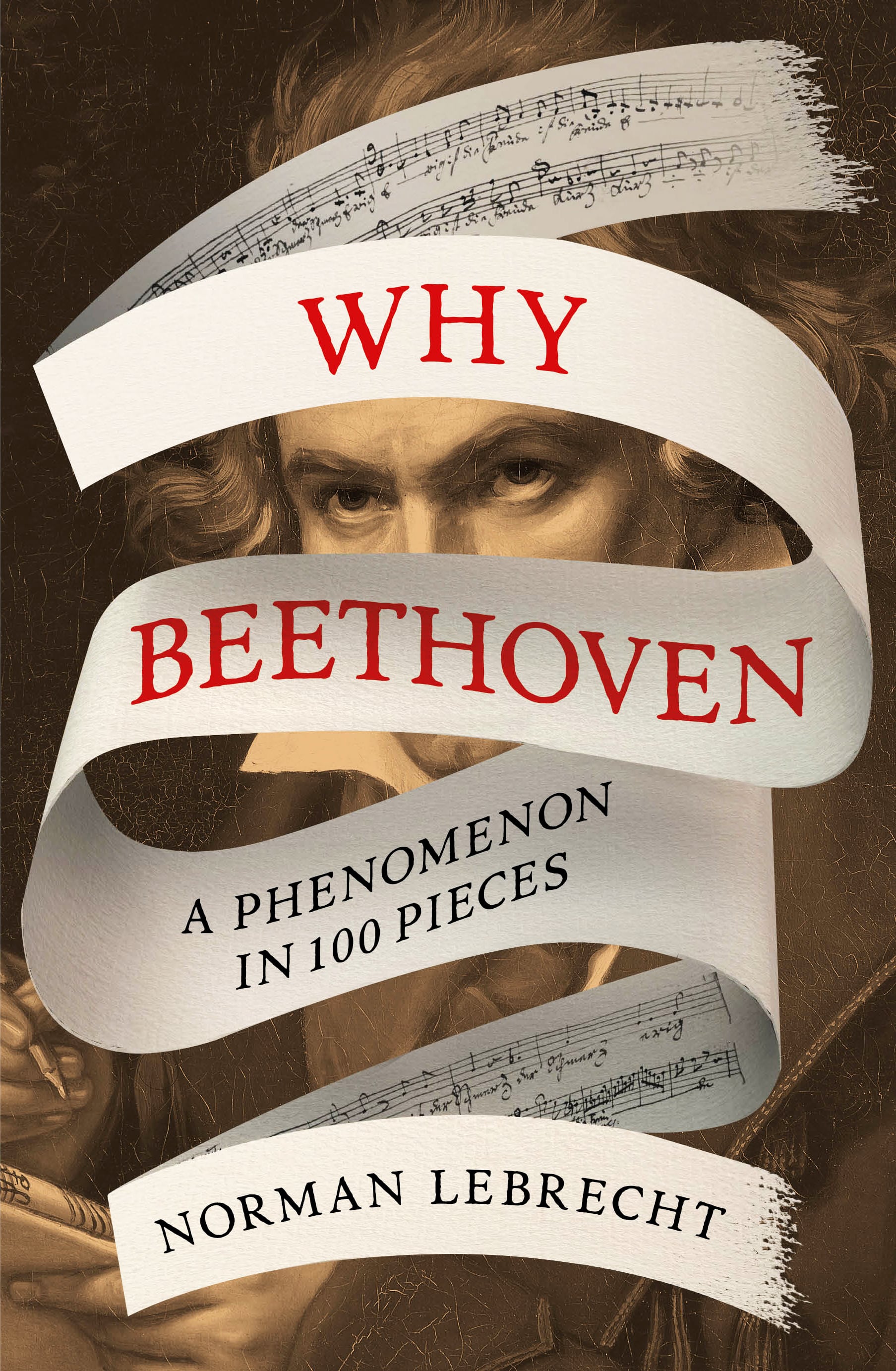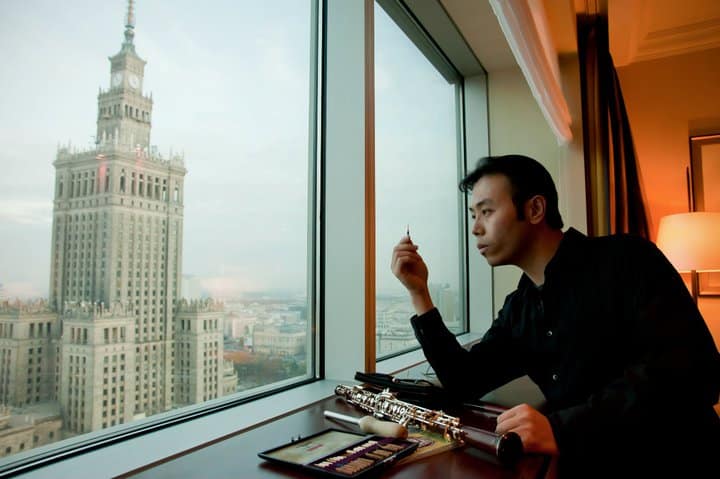Four things that Beethoven never did
Why BeethovenIn my monthly music essay for The Critic I describe a counter-intuitive approach that I took in to discovering Beethoven – not so much describing what he did as discovering what, out of principle, he refused to do:
…He never, for instance, went to church. In the capital of the Holy Roman Empire, he abstained from the social rituals of the state religion. As an artist, Beethoven can get away with it — just. But he is also making a statement about the privacy of faith.
We see it once more when, meticulous in delivering commissions on time, he brings forth one work unforgivably late — three years late, in fact. It is the Missa Solemnis, written for the ascendance of his friend Archduke Rudolf to the archbishop’s seat at Olmütz. Epileptic and rumoured to be gay, Rudolf was Beethoven’s close confidant. He hated losing him to God….
Read on here.
Order Why Beethoven (out now)






One thing that Norman Lebrecht never did. – Checking facts.
Norman Lebrecht writes “alternative facts”.
If that’s what you believe, please leave this site.
Thank you for your reply.
I certainly did not mean to imply deliberate untruthfulness in your postings, but “the other” Norman’s comment just above, judging by the upvotes/downvotes received by his comment (and my and your comments as well), seems to be in agreement with what many of your readers feel to be the case.
Here, there are plenty of clues — inspirations, erasures, second guesses.
Are you sure he never went to Church? Wasn’t one of his jobs as a teenager to play for morning mass in Bonn?
Thank you for this wonderful article! So perceptive. My sister, who played all 32 Sonatas and performed them for over a 20 year period, said that playing Beethoven made her a better person. With her intimacy of his Sonatas, she knew what she was talking about. The moral force is in the music.
Another thing Beethoven almost never did was write anything in B minor. Apparently he thought it the key of the devil.
Never say never…
https://www.beethoven.de/en/work/view/6265213439442944/Piece+for+piano+%28B+minor%29+WoO+61?fromArchive=6299845270700032
https://www.beethoven.de/en/work/view/5718035545456640/Allegretto+for+2+violins%2C+viola+and+cello+%28B+minor%29+WoO+210?fromArchive=4920222922309632
A question about his new book which I have on Pre-Order: there are QR codes to links to hear the music. But…how long will those QR links work? What if I go back to the book is 10 years? Will they still be viable? (Can’t wait to read what “Basket of Deplorables” is all about.)
Not a whisper for viola? Well there is the beloved “eyeglasses” duo with cello, so memorably recorded on 78 rpm by William Primrose and Emanuel Feuermann.
And then there is the curious case of the Notturno in D for viola and piano, op 42. The music is of course his lovely string Serenade for string trio, the op 8. Some publisher hired an un-named individual to arrange it for viola and piano. Beethoven was outraged first because he was not getting any money for it, and second it was in his opinion a hack job. So, according to the story, he re-did it to his satisfaction and that way his publisher could offer it as HIS creation, likely destroying whatever market there was for the other version. It was assigned an opus number, so that is a pretty loud whisper I’d say
The op 29 string quintet calls for an extra viola, and certainly traveling solo violists have been grateful for this chance to sit in with great string quartets and not have to depend on just the (glorious) Mozart quintets, although there would be worse fates than to have only the Mozarts. I happen to like my 78 rpm set with the old Budapest String Quartet and Milton Katims as the extra viola. Others I would suppose would like something in more modern sound (and no side breaks!).
And yes this is cheating because Beethoven did not do it but there are viola arrangements of the horn sonata, and it works pretty well.
As a further footnote, here is Beethoven on op. 42: ‘The arrangements are not by myself, although I looked through them and have corrected them in various places, so do not write that I arranged them, because this would be a lie and I did not have the time and patience to do so.’
There are other string quintets apart from op. 29: op. 4, 104, 137 and some unfinished bits and pieces.
And Beethoven did begin a viola sonata in A major. The surviving fragment – all 10 seconds of it – has even been recorded:
https://www.prestomusic.com/classical/products/7995268–beethoven-by-arrangement-vol-i#tracklist
It all adds up to quite a few whispers, I dare to say.
The ideals of the Enlightenment and Freemasonry were in the air and waters of Beethoven’s Vienna, so it’s no stretch of the imagination to believe he breathed and drank those ideals by not going to church, opposing organized religion, and having a private belief in a Supreme Being. The angle of focusing on what Beethoven didn’t do to not interfere with his agonizing act of composing conforms to an image I’ve always had of him as a secular monk serving the God of Music. I’m interested in knowing whether the book will enforce or rid my image. UK apparently is first in line because the book will come out May 2 in the United States according to Amazon, but they are now accepting pre-orders.
A copy of ‘Für Elise’ in Beethoven’s own hand was found among the papers of Theresa von Brunsvik.
Not true. They were found in Munich in 1867.
It was found among her personal papers in 1851.
A copy was found in Munich in 1865 by the German musicologist Ludwig Nohl .It belonged to a teacher named Barbara Bredl. It was in very bad condition,and the letters of the title ,apart from the last two(SE) ,were missing,…Nohl made a handwritten copy of it and published it,with the permission of Mrs.Bredl,in 1867.
Jackson is right. It was found in 1851 in Theresa von Brunswick’s personal papers – it was transcribed and published in 1867 in a book of his letters.
Read Why Beethoven and you will learn otherwise.
Actually,a few more….For instance,he never wrote a bassoon concerto,and no clarinet sonata…And he never played a saxophone.The list could go on and on…..
Beethoven’s deafness made it difficult to attend Mass services. He did however teach his nephew Karl to pray and did read texts.
His deafness has had much speculation. Two main causes being lead poisoning (Lead salts added to wine to make it taste fresh) and more likely Paget’s disease. In the case of Archduke Rudolph was indeed epileptic. Treatment did not exist in 1818.
Francois Mai discusses Beethoven’s medical history. More recent studies have dismissed Syphilis , Paget’s disease fits more closely. Beethoven was exhumed twice, someone made off with his temporal bones which might have helped in a diagnosis. Anyone finding them please hand them in to Vienna General Hospital.
Mai’s book Diagnosing Genius is worth reading.
https://www.rcpe.ac.uk/sites/default/files/t_100506_a_mai.pdf
Wilhelm Kempff in 1968 plays op 31 no 2. d-moll “Sturm sonate”
This is how it was in the olden days.
https://www.youtube.com/watch?v=5_igMdAhw-E